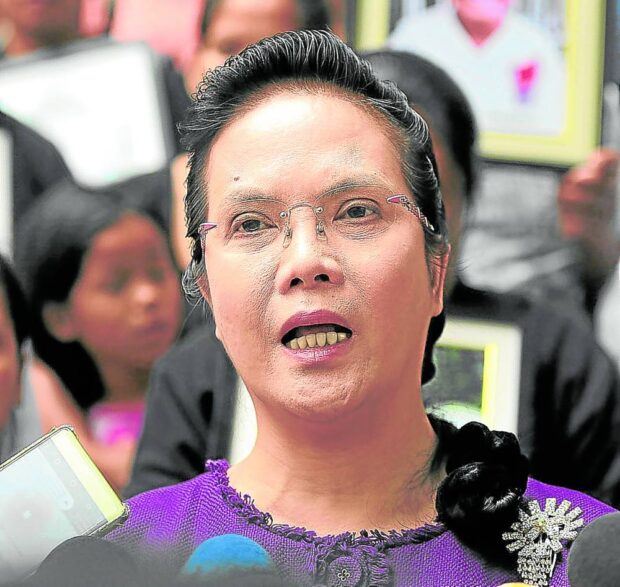Citing new lawyers’ code, PAO tells SC: We can’t play both sides

PAO Chief Persida Acosta
The Public Attorney’s Office (PAO) has asked the Supreme Court to amend a provision in the recently approved Code of Professional Responsibility and Accountability (CPRA) which allows PAO lawyers to represent opposing parties in court cases.
The high court recently issued the CPRA, replacing a 34-year-old guide that governs the conduct of lawyers.
PAO’s appeal concerns Section 22, Canon III of the CPRA, which states: “A conflict of interest of any of the lawyers of the PAO incident to services rendered for the Office shall be imputed only to the said lawyer and the lawyer’s direct supervisor. Such conflict of interest will not disqualify the rest of the lawyers from PAO from representing the affected client, upon full disclosure to the latter and written informed consent.”
READ: SC approves updated lawyers’ code
PAO Chief Persida Acosta on Thursday said her office had sent a letter to the Supreme Court seeking the removal of the provision “so the PAO will be governed by the remaining provisions on conflict of interest.”
“I hope the SC justices would listen to us,” she told reporters, adding that her agency—which in most cases extends legal assistance to indigent defendants—cannot provide two lawyers who will argue with each other in court.
OK for mediation
Apart from affecting the trust and confidence of PAO clients, Acosta said, “I don’t want to see my children fight each other before me. That’s painful.”
PAO lawyers, she said, could represent opposing parties during the mediation process. “We can do that when the case is not yet filed before the court. But once a case is within the jurisdiction of court, it would be difficult,” said Acosta.
In March, some suspects in the alleged hazing death of Adamson University student John Matthew Salilig failed to secure a lawyer from PAO, apparently due to a conflict of interest.
PAO then explained that the agency would already be rendering its services to the complainant in the Salilig case, that’s why it could no longer assist the respondents. In a letter dated Sept. 15 and addressed to Chief Justice Alexander Gesmundo, PAO said Section 22 might give a PAO client the impression that he or she was being blindsided.
“[T]his would invite suspicion by the current client that PAO has no undivided loyalty and fidelity to his/her cause,” the letter read. “Truth be told… based on PAO’s experience, PAO clients would not agree that their rival parties be also represented by public attorneys.”
“This goes true even for previous engagements. From PAO’s experience, clients would not want to be represented by a counsel who previously assisted an adversary; and would not want their public attorney to represent their adversary even in future and unrelated cases,” it said.
For discussion with DOJ
Acosta earlier said that she would discuss PAO’s next step with other officials of the agency.
Sought for comment, Justice Secretary Jesus Crispin Remulla on Friday said he would discuss the matter with Acosta.
“We will establish parameters for discussion so everything would be clear,” he added.
The CPRA updates the Code of Professional Responsibility for lawyers, which was promulgated in 1988.
“[The] CPRA captures the ideal characteristics that all in the legal profession must live up to,” Gesmundo said of the new code during its formal introduction.
The updated guide tackles the use of social media, the formation and definition of a lawyer-client relationship, and the conduct of nonlegal staff, among others.
It also consolidates regulations on the discipline of lawyers, abbreviates administrative proceedings, and addresses the punitive aspect of unethical legal practice.